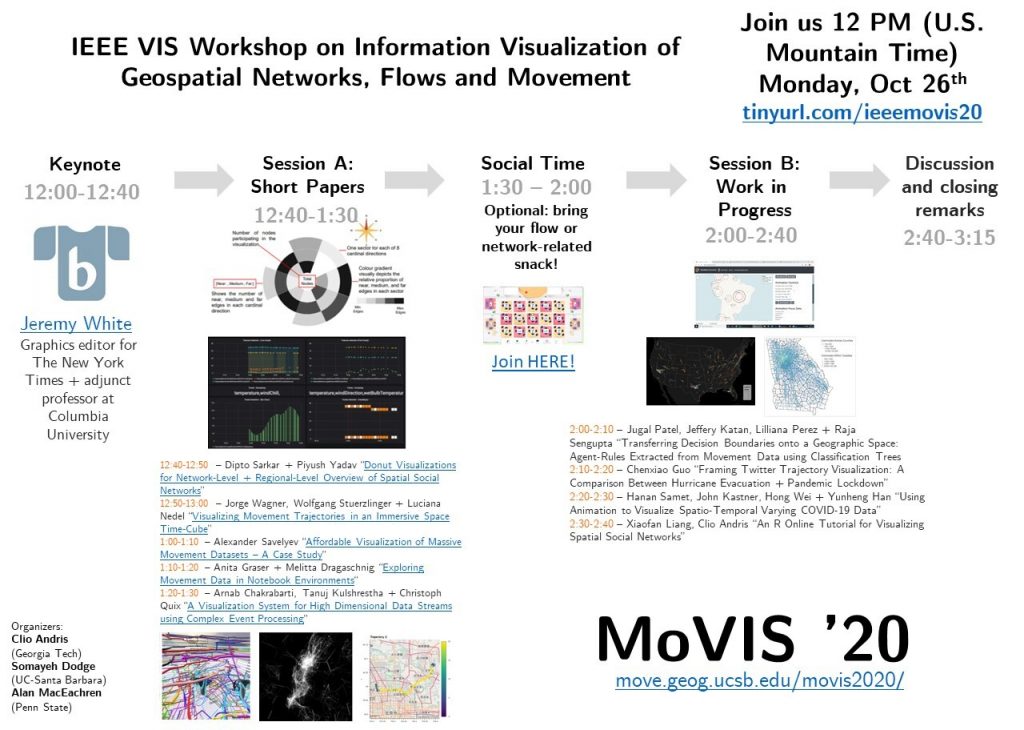The full recording of the IEEE VIS Workshop on Information Visualization of Geospatial Networks, Flows and Movement (MoVIS 2020), held on October 26th, 2020, is now available to watch on-demand. View the recording here on YouTube.
Researchers frequently access and visualize data that represent spatial connections. These include GPS trajectories, migration movement, mobile phone-based movement, social networks, flights, commutes, SMS/phone call connections, human and animal movement trajectories, commuter flows, international trade, disease transmission flows, remittance flows, online friendship connections and transportation magnitudes. They are important in the study of globalization, wealth distribution, information spreading, epidemiological modeling, economics and infrastructure management. At the same time, analyzing these data requires advanced visualization methods. The objectives of this workshop were to explore the best ways to visualize large, spatio-temporal flow systems with both node and edge attribute data; describe the best visualization methods to unearth meaningful results; facilitate the use of diverse big data sets, communicate these results through visualization and description; and reflect upon how visualization is best communicated for urban and regional studies, geography, urban planning, public health, civil engineering, sociology and related fields.
The MoVIS ’20 workshop is situated in a larger body of research on geovisualization, geospatial data analytics and exploratory spatial data analysis (ESDA). This body of work includes mapping spatial datasets using different visual techniques, and assessing how humans interact and gain insights from spatial data. Spatial flow data is a special type of data that presents issues like the “haystack” problem of overlapping flows, edge effects, issues of using polygon centroids as origins or destinations, and issues of scale and modifiable areal units.
More info:
The MoVIS 2020 workshop was organized by Somayeh Dodge along with Clio Andris (Georgia Institute of Technology) and Alan MacEachren (Pennsylvania State University). Full program committee and more details about the workshop are available on the MoVIS 2020 page.
